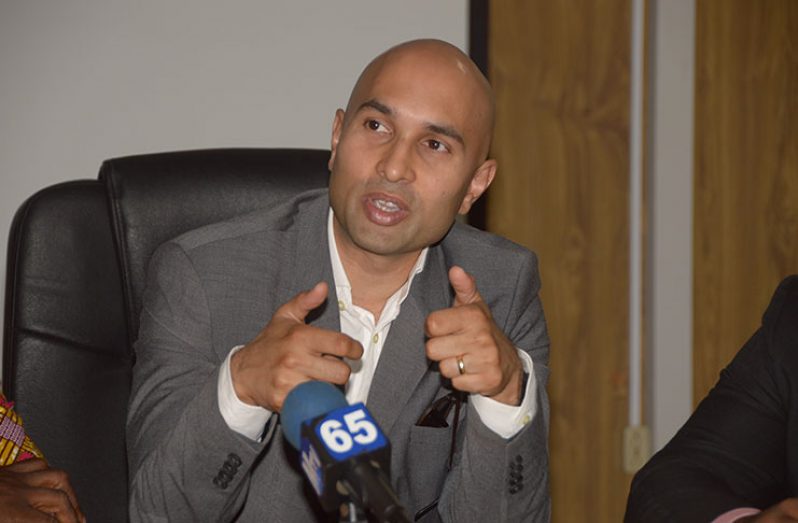THE Georgetown Chamber of Commerce and Industry (GCCI) is encouraging local companies to get involved in oil and gas exploration and drilling in feasible areas such as onshore and shallow waters.
This call was made by GCCI President, Nicholas Boyer, on Wednesday as he signed a Memorandum of Understanding (MoU) for two years of collaborative ventures with the Guyana-Ghana Chamber.
While recent headlines have come against “junior companies” for being awarded oil blocks in “ultra-deep waters” by the People’s Progressive Party (PPP) in 2015, Boyer suggests that local companies can participate in oil exploration but must do so where they are capable of achieving results.
“I think where locals can really participate in is onshore to near-shore, because onshore to near-shore, the complexity, the understanding of the engineering behind it…it doesn’t come with the risk of that deep and ultra-deep [waters],” Boyer reasoned.
Since May month-end, news broke of an ongoing investigation by the local State Assets Recovery Agency (SARA) into the awarding of oil blocks offshore Guyana to “junior” companies.

The awarding of the Canje and Kaieteur Blocks, now raising many eyebrows, are in ultra-deep water, deep or deeper than where Exxon has found oil. Thus far, major companies– ExxonMobil and Tullow– are the only ones making notable advancements to drill for oil in their blocks awarded.
Members of the Guyanese public, though being non-specialists in the oil and gas sector, are now questioning whether they have been shortchanged by the former administration with the award to “inexperienced” companies.
Giving an example of how local companies — not as experienced as the likes of ExxonMobil— can participate, Boyer explained the difference between the engineering used for cementing wells in shallow waters or onshore versus that which is used in deep or ultra-deep waters.
“If you think about the well going thousands of feet, for the first thousand feet you can use regular cement [but] as you go deeper, the pressure and temperature increase, so you have to use very specialized mixtures to keep the well from collapsing,” he explained.
However, he also believes that these companies must first be “fostered by government policies” as while onshore land or blocks may be acquired, the minerals below are owned by the government. “You can’t just go and drop a derrick or a rig in somebody’s backyard and you haven’t had an agreement with the person who owns the surface,” he said.
Meanwhile, Executive Secretary (ag) of the Guyana-Ghana Chamber, Nuertey Adzeman, with whom Boyer signed the MoU, also agreed that Guyana must move towards the production of oil for itself.
“You cannot rely on the foreign companies throughout your life time; you need to build capacity and put three, four, five…Guyanese [companies] together [and] give them all the support that you can to let them start something. They may burn some monies here and there but that is the model Nigeria adopted and, today, Nigeria’s indigenous oil [and gas companies] are producing oil in marginal and shallow fields. You need to start thinking of that,” he urged.


.jpg)











